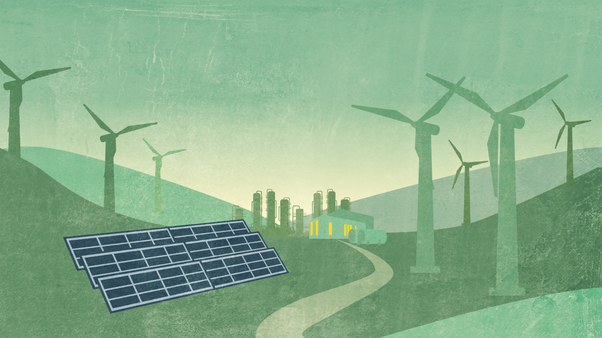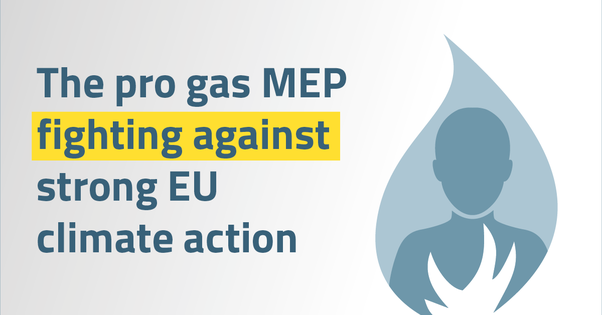A pipeline to export fossil hydrogen from Norway to Germany is in the running for EU subsidies, and would rely on new hydrogen plants which would burn more fossil gas than Denmark, Ireland and Portugal combined, according to a leaked document and new analysis by Global Witness.
Equinor’s pipeline would flood Europe with hydrogen made from fossil gas – also known as ‘blue hydrogen’ – produced at two large-scale facilities in Norway, one of which Equinor is planning to build, the other proposed by Shell. [1]
New research from Global Witness shows that producing the amount of hydrogen planned by Equinor and Shell in Norway would burn 13.7 billion cubic metres of fossil gas per year – more than Ireland, Denmark and Portugal’s annual consumption of fossil gas combined and equivalent to the carbon dioxide emissions of 15.5 million cars. [2,3]
Dominic Eagleton, senior fossil fuels campaigner at Global Witness, said: “Not only are Shell, Equinor and RWE plotting to lock Europe into a future of climate-wrecking fossil gas, but Equinor are on track to get public funds from the EU to make it happen. As the climate crisis deepens, the very least we should expect is for taxpayers’ money to not be wasted on fossil fuels – this project should be a non-starter, and we urge the EU not to support it.”
RWE, the German electricity producer, is also a key player in this hydrogen mega project. It plans to use the imported hydrogen to fuel what it claims are ‘hydrogen-ready’ power plants in Germany, but the company intends to switch the plants from fossil gas to hydrogen only “gradually.”
The companies claim that a high proportion of the emissions from hydrogen production will be trapped by carbon capture and storage systems (CCS). Yet over 80% of CCS projects have failed globally, and many that remain operational are capturing far less carbon than intended. Global Witness research from 2022 showed that the CCS system at Shell’s hydrogen plant in Alberta, Canada – one of the only large-scale ‘blue hydrogen’ plants currently operating – was emitting more climate-wrecking gases than it was capturing.
A leaked document seen by Global Witness confirms that Equinor’s blue hydrogen pipeline is the only gas-dependent installation on a draft European Commission list of energy infrastructure projects. If included in the final ‘Projects of Common Interest’ list, the pipeline would benefit from a faster permitting process and can apply for a funding from a €5.4bn pot of EU subsidies. [4]
Equinor’s push for public funding follows talks earlier in 2023 between Germany’s vice-chancellor Robert Habeck and Norwegian prime minister Jonas Gahr Støre, who had previously lobbied Berlin to develop a German hydrogen market supplied by imports of blue hydrogen from Norway.
Norway and Germany subsequently published a joint statement confirming their commitment to developing a large-scale supply of hydrogen and pipeline infrastructure between the two countries.
The European Commission is due to publish its list of energy projects by the end of November.
Notes to editor:
[1] RWE states its intention to import all of Equinor’s blue hydrogen production for this joint project to Germany via the planned pipeline on its website. In a submission to ENTSOG, Europe’s association of gas pipeline operators, Shell states that the blue hydrogen from its planned Norwegian production facility will feed in to Equinor’s pipeline via another pipeline. Presented in an ENTSOG spreadsheet: row 263, column H in the ‘HYD’ tab.
[2] Equinor is planning blue hydrogen production capacity of up to 10 GW, which it says would yield 2.5 million tonnes per year. Shell’s project aims to produce 438,000 tonnes of blue hydrogen per year (row 222, column J in the ‘HYD’ tab). The analysis assumes 4,670 cubic metres of fossil gas is required to produce one tonne of blue hydrogen (Hydrogen Science Coalition). Data for countries’ 2022 fossil gas consumption is available here.
[3] This assumes an emissions rate of 1.9 kg CO2 per cubic metre of fossil gas. Analysis of UK Department for Transport data shows that the average CO2 emissions per UK car per year was 1.682 tonnes in 2022.
[4] The European Commission’s Projects of Common Interest (PCI) list is revised every two years. Updated calculations by Global Witness show that over the past decade, the EU handed out €5 billion to fossil gas projects that have been included in the list. In 2020, Global Witness reported that fossil gas PCIs received €4.662 billion in EU grants and subsidised loans from 2014 to 2019. Further analysis by Global Witness shows that since 2019, gas PCIs received another €393 million in EU subsidies. These are the Cyprus gas import facility; the Bulgaria-Serbia gas interconnector; the Chiren gas storage facility; the Bilciuresti gas storage facility; and the Gdansk LNG terminal.


